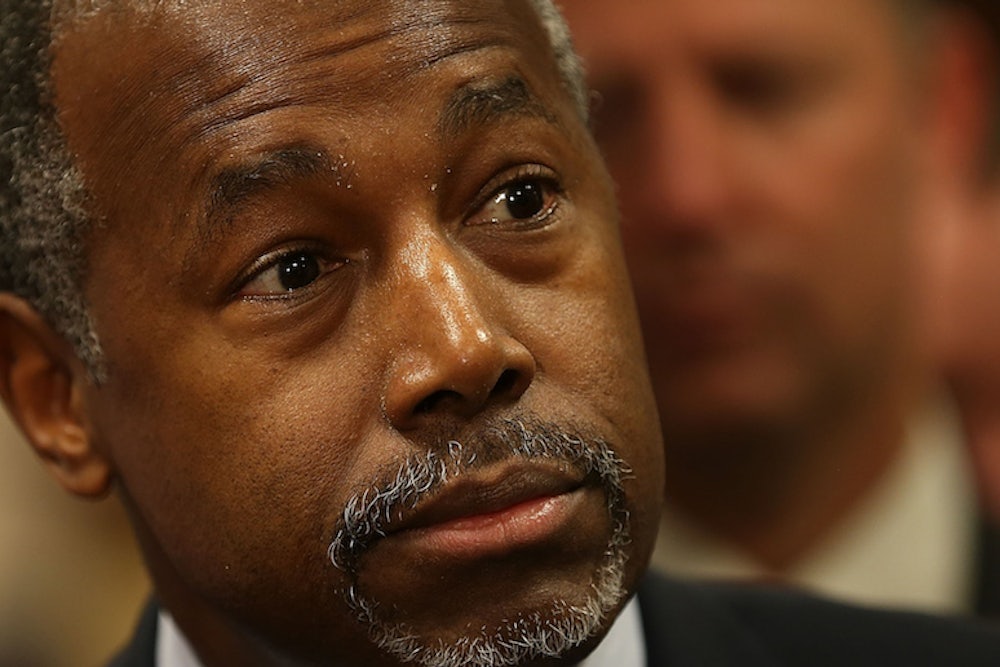Ben Carson’s popularity among conservatives has been marked by their imperviousness to questions about his honesty and fitness. Carson has made dozens of statements about federal policy that have transcended garden-variety conservative over-promising and reached the realm of Chauncey Gardner-esque absurdity. He has also faced serious questions about the veracity of stories he tells about his youth and young manhood. Through it all, conservatives have not only stuck by his side, but actually become more taken with him. They've brushed off scrutiny with glib mockery, accusing white liberals of “othering” a black man for having the temerity to leave the “thought plantation.”
That all likely changes now that Carson has confessed to fabricating a seminal story about having declined admission to West Point in his youth. When you’ve lost Breitbart, it stands to reason that you will also lose talk-radio fawning, viral email forwards, and all the other mysterious sources of conservative cult status.
But there is room for genuine doubt here: Could Carson’s supporters prove so uninterested in his genuine merits and demerits that they might look past this transgression? The very fact that this doubt exists incriminates both the conservative-entertainment complex and the nature of the Republican electorate.
Carson has been famous for years, and a political celebrity since February 2013, when he issued a meandering indictment of President Obama at the National Prayer Breakfast while Obama sat next to him, silent and captive. The whole time, Carson has boasted of rejecting a “full scholarship” to West Point, an academy that actually pays people for their attendance. He thrust his deception into the public eye over and over and over again, and nobody questioned it until he became a poll leader in the Republican presidential primary.
This is not a great reflection on the media, I suppose—but it's a worse reflection on the people who vaulted Carson to the summa of the conservative movement without bothering to investigate him. The price of entry into this realm of politics is so low that many, many successful people (Carson, but also Herman Cain and others) believe that the way they are perceived will protect them from their skeletons.
In this way, Carson’s rise is reminiscent of the McCain campaign’s decision to elevate Sarah Palin to vice presidential nominee after the most cursory vetting. Carson and Palin both paired reactionary politics with identities more closely associated with liberalism. Palin’s value was in her potential to undermine the historic nature of Obama’s candidacy. Carson’s is in his willingness to validate and absolve conservative racial politics. Republicans have pointed to Carson’s popularity as evidence of conservative enlightenment on racial issues, taking the superficial argumentative power of “some of my best friends are black” and applying it to a national ideological movement.
These phenonema were driven, to a large extent, by the idea that branding can eclipse structural political realities. What’s amazing and distressing is that, for millions of American conservatives, it absolutely can.
